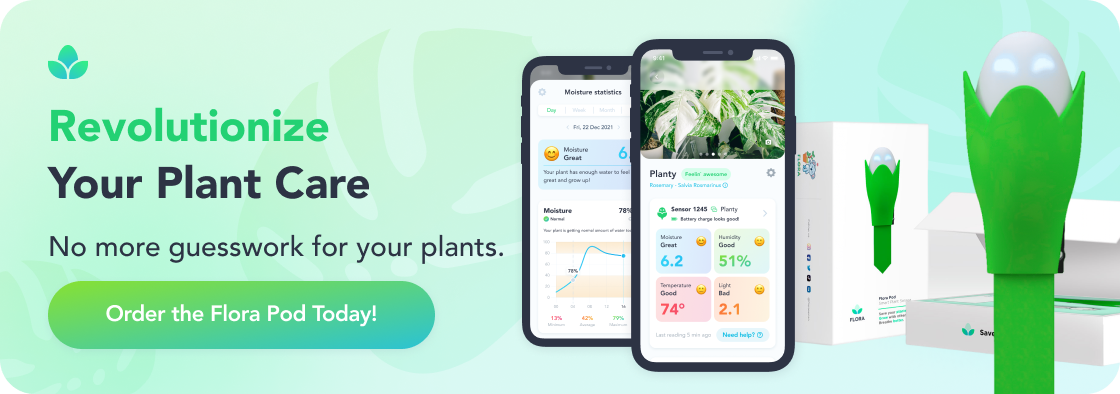What Is an Annual Plant? Understanding Seasonal Growth

Annual plants are a staple in gardens, known for their short but vibrant life cycle. Unlike perennials that return year after year, annual plants complete their entire life cycle—from germination to seed production—in just one growing season. Once they flower, produce seeds, and die, they need to be replanted the following year. This characteristic gives annuals a distinct advantage in garden design, offering flexibility, variety, and long-lasting blooms throughout the season.
What Is an Annual Plant?

An annual plant goes through its full life cycle in a single growing season. After sprouting from seed, an annual grows rapidly, develops flowers, produces seeds, and dies once the weather conditions become unfavorable, such as frost or extreme heat. This life cycle generally lasts for several months, depending on the plant species and the climate.
Annual plants can be grouped into three main types based on their temperature tolerance:
Hardy Annuals: These plants can tolerate light frost and cooler temperatures, making them ideal for early spring and fall plantings. Examples include pansies and snapdragons.
Tender Annuals: These plants thrive in warm weather and cannot withstand frost. Marigolds and zinnias are popular tender annuals that bloom throughout the summer.
Half-Hardy Annuals: These plants can tolerate a wider range of temperatures, making them suitable for various climates. Examples include strawflowers and sweet peas.
Benefits of Growing Annual Plants
Annual plants are favored by many gardeners for several reasons:
1. Seasonal Variety
One of the main appeals of annual plants is the ability to refresh your garden’s look each year. Because they need to be replanted annually, you can experiment with new plant varieties, colors, and arrangements to match your evolving tastes and garden design.
2. Extended Blooming Season
Annuals are known for their prolific blooming. Unlike perennials that may have a short flowering period, many annual plants bloom continuously throughout the season, providing vibrant color from spring until the first frost. This extended blooming period ensures your garden is always full of life and color.
3. Pollinator-Friendly
Many annual plants, such as sunflowers and zinnias, are excellent at attracting pollinators like bees, butterflies, and hummingbirds. This makes them a valuable addition to any garden, contributing to the health of your local ecosystem while also adding visual interest.
4. Easy to Grow
Annuals are typically straightforward to grow, even for beginner gardeners. Many species can be started from seed with little effort, making them an affordable option for creating a lush garden. Their quick growth and rewarding blooms make annuals ideal for those who want to see fast results.
Popular Annual Plants for Your Garden
Annual plants are loved for their vibrant colors, long-lasting blooms, and the ability to refresh your garden each year. Here are some popular annuals that can add a splash of color and variety to your garden:
1. Marigolds (Tagetes spp.)

Marigolds are a garden favorite due to their bright, cheerful blooms that range from golden yellow to deep orange. Known for their pest-repelling properties, they are often planted in vegetable gardens as companion plants. Marigolds thrive in full sun and are incredibly easy to grow, making them a perfect choice for beginners.
2. Petunias (Petunia spp.)

Petunias are one of the most versatile annuals, available in a wide array of colors including pinks, purples, reds, and whites. They are excellent for hanging baskets, containers, or borders and bloom profusely throughout the summer. Petunias prefer full sun and need regular watering to maintain their vibrant display.
3. Zinnias (Zinnia elegans)

Zinnias are known for their vibrant, daisy-like flowers that bloom in a wide range of colors. These sun-loving plants are ideal for garden beds and cut flower arrangements. Zinnias attract butterflies, making them a great choice for pollinator gardens. They are also drought-tolerant once established, making them low-maintenance.
4. Impatiens (Impatiens walleriana)
Perfect for shady spots, impatiens bring a burst of color to areas where other plants might struggle. Their blooms come in shades of red, pink, white, and purple, and they are ideal for containers, hanging baskets, and garden beds. They thrive in partial to full shade and prefer consistently moist soil.
5. Sunflowers (Helianthus annuus)

Sunflowers are tall, striking annuals that add height and drama to any garden. Known for their large, bright yellow blooms, sunflowers are easy to grow and attract pollinators like bees and butterflies. They thrive in full sun and well-draining soil, making them a low-maintenance option for gardeners of all skill levels.
6. Cosmos (Cosmos bipinnatus)

With their delicate, daisy-like flowers, cosmos add an airy elegance to any garden. Available in shades of pink, white, and purple, these annuals bloom from summer until the first frost. Cosmos are drought-tolerant and prefer full sun, making them ideal for low-maintenance gardens.
7. Alyssum (Lobularia maritima)

Alyssum is a low-growing annual that produces clusters of tiny, fragrant flowers in white, purple, and pink. It’s perfect for edging, ground cover, or container gardening. Alyssum thrives in cooler weather, making it a great choice for early spring or fall plantings.
8. Geraniums (Pelargonium spp.)

Geraniums are popular annuals for containers and garden beds due to their large, vibrant flowers and robust foliage. Available in shades of red, pink, white, and purple, geraniums are easy to grow and do well in full sun to partial shade. They also benefit from regular deadheading to promote continuous blooms.
These annual plants not only provide long-lasting color but are also easy to grow and care for, making them a wonderful addition to any garden. Whether you're filling containers, creating borders, or attracting pollinators, these popular annuals will help you create a vibrant, blooming landscape throughout the growing season.
Caring for Annual Plants
While annual plants are generally easy to care for, providing them with the right environment will ensure they thrive throughout the season.
1. Choosing the Right Location
Most annuals thrive in full sunlight, requiring at least six hours of sun each day. Some, like impatiens and pansies, can tolerate partial shade, making them suitable for areas with less direct sunlight. Ensure your garden or container location matches the plant’s light requirements for optimal growth.
2. Soil and Watering Needs
Annuals grow best in well-draining, fertile soil. Preparing the soil with compost or organic matter can enhance its quality, providing the nutrients needed for strong root development. Regular watering is essential, especially during dry periods, but be cautious not to overwater, as this can lead to root rot.
3. Fertilizing
To encourage robust growth and continuous blooms, fertilize your annuals every few weeks during the growing season. A balanced, water-soluble fertilizer will provide the nutrients necessary for vigorous flowering.
4. Deadheading
Removing spent flowers, or deadheading, is crucial for prolonging the blooming season. By preventing the plant from focusing its energy on seed production, you encourage it to continue flowering, ensuring vibrant color throughout the season.
Understanding Annuals vs. Perennials and Biennials

In contrast to annuals, perennial plants return each year, living for several growing seasons. They may take a year or more to establish but provide a dependable, low-maintenance option once mature. Biennials, on the other hand, live for two years, growing foliage in the first year and blooming in the second. While perennials and biennials offer long-term solutions, annuals provide flexibility and instant results, making them ideal for gardeners who enjoy seasonal change.
Fern's Leafy Learnings
Seasonal Flexibility: Annual plants offer a chance to refresh your garden each year with new colors and varieties.
Extended Blooms: Many annuals bloom continuously, providing a long-lasting display from spring to fall.
Pollinator Attraction: Annuals like zinnias and sunflowers are excellent for attracting pollinators, contributing to a healthy ecosystem.
Hardy and Tender Varieties: Hardy annuals tolerate cool weather, while tender annuals thrive in warm summer months.
Simple Care: Annuals are easy to grow from seed and respond well to basic care, including full sun, regular watering, and occasional fertilizing.
Fern's Leafy Learnings
Seasonal Flexibility: Annual plants offer a chance to refresh your garden each year with new colors and varieties.
Extended Blooms: Many annuals bloom continuously, providing a long-lasting display from spring to fall.
Pollinator Attraction: Annuals like zinnias and sunflowers are excellent for attracting pollinators, contributing to a healthy ecosystem.
Hardy and Tender Varieties: Hardy annuals tolerate cool weather, while tender annuals thrive in warm summer months.
Simple Care: Annuals are easy to grow from seed and respond well to basic care, including full sun, regular watering, and occasional fertilizing.
Deepen Your Roots with Flora
At Flora, we not only bring you a vibrant selection of locally sourced, rare, and delightful plants, but we also serve as your continuous guide in your plant parenting voyage, ensuring every leaf in your sanctuary thrives. With our Flora Pod™ technology and a nurturing community of over 250,000 plant lovers, we cultivate a space where every plant parent - novice or expert - can blossom.
We propagate with a commitment to sustainability, connection, and ceaseless growth, fostering a community where each member, and their plants, are cherished and nurtured.
Crave a lush, thriving green space? Adopt a plant from Flora today!
Flora Pod™ is featured on Shark Tank!

5 Signs Your Houseplant Needs Repotting Now
Mar 02, 2026
6 Anthurium Benefits You Didn't Know About
Mar 02, 2026

How to Prune Your Houseplants Before Spring Growth Season
Mar 02, 2026

10 Best Houseplants for Spring Repotting Success
Mar 02, 2026

Can ZZ Plants Survive in Low Light Conditions?
Mar 02, 2026

5 Critical Pre-Spring Pruning Tips for Houseplants
Mar 02, 2026

Can Succulents Survive Winter Outdoors in Your Climate Zone?
Mar 02, 2026

Which Houseplants Are Toxic to Cats and Should You Avoid Them?
Mar 02, 2026




